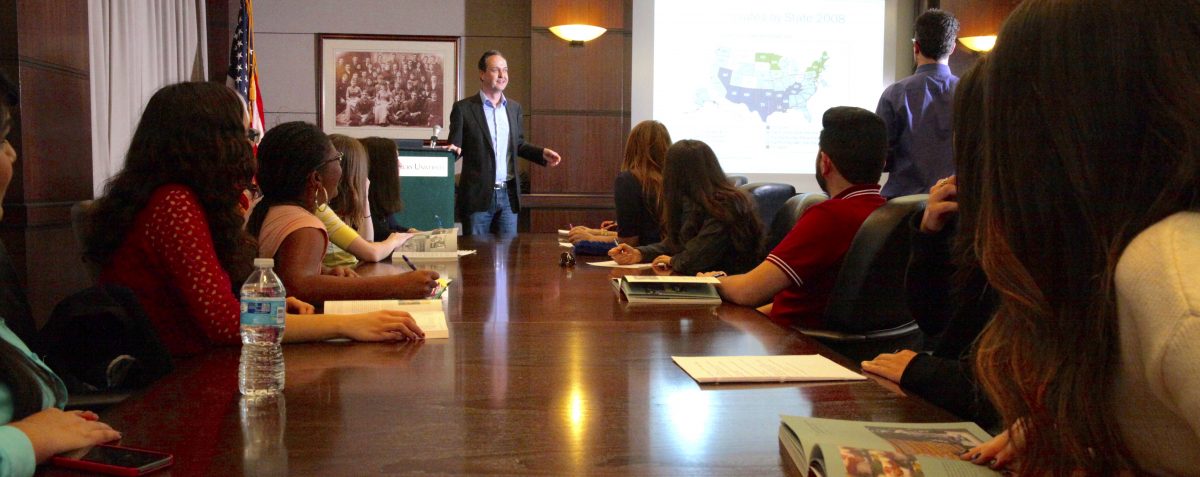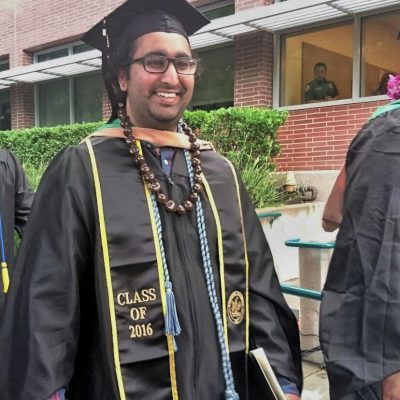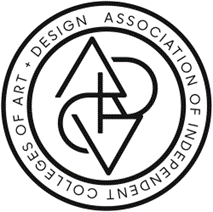Liberal Arts and Sciences
Psychology
Bachelor of Arts, [STEM Program]
The goal of psychology is to describe, predict and explain human thought and behavior. At Woodbury, psychology is applied to helping people and communities thrive and solve problems. Through research, critical analysis, and hands-on experiences, our faculty actively mentor students in applying classroom knowledge to real-world issues.
The Psychology program is no longer accepting new applications. Students interested in Psychology can find information for these programs offered at the University of Redlands. If you have already applied or inquired about this program, we invite you to reach out to our Admissions Office to discuss the options that are available to you by emailing [email protected] or calling 818.252.5221.
A Future in Psychology
The Psychology program examines the complexities of human behavior — both as individuals and as part of larger social communities. Core courses in the department include, developmental, social, personality, influence and persuasion, and abnormal psychology. Additionally, the program offers a variety of exciting and unique courses such as media psychology, psychology of evil, psychology of fear, psychology of fashion, addictions, introduction to counseling, human sexuality, neuropsychology, and forensics.
The Psychology program prepares students to work in diverse fields such as counseling, social work, advertising and marketing, education, medicine, law, public policy, quantitative data analysis, media communications and more. Students receive a strong foundation in psychological theory and application that successfully prepares them for professional work or graduate school. All Psychology students complete an original, independent senior thesis research project on a topic of their choice. Ninety-four percent of these projects have been accepted for presentation at national and regional psychology conferences.
Top reasons to come to Woodbury:
- Strong one-on-one mentorship with faculty, building research skills and preparing future professionals.
- Internships and graduating portfolios that increase employability.
- Psychology classes are guaranteed for majors.
- On-time graduation, unlike many Cal State Universities where psychology is impacted and not accepting new majors.
- Emphasis on application of psychology to the amelioration of today’s real world problems.
- Student success — Psychology majors have one of the highest employment rates after graduation, and over 90% of our students who apply to graduate school are accepted.
Psychology Courses
The Psychology curriculum is designed to provide graduates with a solid understanding and mastery of the fundamentals of psychological science. Students receive a thorough foundation in theory, research design, statistics and critical thinking, along with an emphasis on applying psychological principles to real world issues. The curriculum is organized around three types of courses:
- Introductory courses offer students an initial look at psychology as a highly influential and dynamic branch of scientific study. These early classes focus on the overall impact psychology has had on the world, the values it promotes and the many types of professional careers it offers.
- Breadth courses further immerse students in a wide array of specialization areas in psychology through a handful of mid-level core courses and a variety of department electives.
- Research sequence courses provide students with applied training in research design and quantitative analysis unmatched by most other psychology undergraduate programs. Students gain invaluable professional experience through completion of an individual empirical thesis capstone project.
Students can transfer into the program at any time (Fall or Spring), with no minimum number of credits required.
Transfer Articulation Agreements
Concentration Courses (Optional)
As a Woodbury Psychology student, you have the option to add a concentration to your degree which allows you to focus your studies on courses that are of interest to you and of value to your future career.
In the clinical concentration students are prepared for a future in therapy and or counseling.
Courses Required:
PSYC 309 Abnormal Psychology
Abnormal psychology is the study of disorders of a psychological nature. This course is intended to familiarize the student with the symptoms, causes, and treatments of a variety of such disorders, including mood, anxiety, and personality disorders, as well as disorders related to substance abuse. Lecture. Prerequisites: WRIT 112, Academic Writing II, or WRIT 212, Rhetoric and Design; LSCI 105, Information Theory and Practice, or LSCI 106, Information Sources in Architecture and Interior Architecture, or LSCI 205,
Information in the Disciplines; PSYC 200, Introduction to Psychology; and COMM 120, Public Speaking.
PSYC 319 Intro to Counseling
This course provides an introduction to and overview of professional counseling. Selected theories will be evaluated briefly and their methods of application emphasized. Counseling strategies for specific groups (e.g., families, children, drug addicts, etc.) will be explored. Professional issues related to laws, ethics, and personal care also will be considered. Prerequisites: WRIT 112, Academic Writing II, or WRIT 212, Rhetoric and Design; LSCI 105, Information Theory and Practice, or LSCI 106,
Information Sources in Architecture and Interior Architecture, or LSCI 205, Information in the Disciplines; COMM 120, Public Speaking; and PSYC 200, Introduction to Psychology.
PSYC 322 Marriage and Intimacy
This course uses a critical-thinking approach to introduce students to the study of intimate relationships, encouraging them to interact and participate with what they read. Foundational topics like theoretical perspectives, cultural influences, gender, and sexuality are balanced with coverage of nontraditional relationships, cohabitation, couples therapies, divorce, and relationships across the lifespan. Current trends that affect students directly, from “hooking up” to social networking web sites and internet dating, make this course educational,
pertinent, and practical. Prerequisites: WRIT 112, Academic Writing II; LSCI 105, Information Theory and Practice, or LSCI 106, Information Sources for Architecture and Interior Architecture, or LSCI 205, In-formation in the Disciplines; and PSYC 200, Introduction to Psychology.
PSYC 3700 Addictions
This course focuses on various areas of interest within the field of psychology. Prerequisites: WRIT112, Academic Writing II, or WRIT 212, Rhetoric and Design, LSCI 105, Information Theory and Practice, or LSCI 106, Information Sources in Architecture and Interior Architecture, or LSCI 205, Information in the Disciplines; PSYC 200, Introduction to Psychology; COMM 120, Public Speaking; and other specific prerequisites depending on topic.
PSYC 410 Senior Thesis: Clinical topic
The course emphasizes the student’s ability to synthesize and integrate the knowledge gained throughout the program. Students will complete an entrepreneurial research design project by collecting and analyzing data and writing an APAstyle manuscript, which will include Introduction, Method, Results, and Discussion sections. Students are also required to design a poster exhibit to be prepared for presentation at a psychology conference or convention. In addition, students will reflect on their learning experiences, goals, and ambitions by completing a portfolio of their future plans, a professional CV, and a personal statement. Prerequisites: PSYC 331, Advanced Statistics for the Behavioral Sciences; and PSYC 402, Advanced Research Methods; psychology majors with senior standing only.
In the media concentration, students are prepared for a variety of careers in areas such as advertising/marketing, social media, and app or web content creation.
Courses Required:
PSYC 306 Influence and Persuasion
This course explores how people influence themselves and each other singly and in groups. The activities of compliance professionals such as sales persons, con artists, politicians, etc. are stressed. Additionally, concentration is placed on research into the effects of influence and the ethics of its application. Lecture.
Prerequisites: WRIT 112, Academic Writing II, or WRIT 212, Rhetoric and Design; LSCI 105, Information Theory and Practice, or LSCI 106, Information Sources in Architecture and Interior Architecture, or LSCI 205, Information in the Disciplines; PSYC 200, Introduction to Psychology; and COMM 120, Public Speaking. Psychology majors only: PSYC 300, Social Psychology
is also a prerequisite.
PSYC 317 Media Psychology
This course encompasses the behavioral aspects of media in activities, events, theories, and practices with regard to the effects and behaviors stimulated by its elements. These include pictures, sound, graphics, and content and their effects on the senses and intelligence. Prerequisites: LSCI 105, Information Theory and Practice, or LSCI 106, Information Sources in Architecture and Interior Architecture, or LSCI 205, Information in the Disciplines; WRIT 112, Academic Writing II, or WRIT 212, Rhetoric and Design; COMM 120, Public Speaking; and PSYC 200, Introduction to Psychology.
PSYC 318 Consumer Behavior
This course examines the application of psychological theory and applied research methods to the study of consumer behavior. The psychological processes that influence consumer decision making will be addressed, including product recognition, alternative evaluation and choice behavior, and post-purchase attitudes and behavior. Prerequisites: LSCI 105, Information Theory and Practice, or LSCI 106, Information Sources in Architecture and Interior Architecture, or LSCI 205, Information in the Disciplines; WRIT 112, Academic Writing II, or WRIT 212, Rhetoric and Design; COMM 120, Public Speaking; and PSYC 200, Introduction to Psychology.
PSYC 3XX Motivation and Emotion
PSYC 410 Senior Thesis: Media topic
The course emphasizes the student’s ability to synthesize and integrate the knowledge gained throughout the program. Students will complete an entrepreneurial research design project by collecting and analyzing data and writing an APA style manuscript, which will include Introduction, Method, Results, and Discussion sections. Students are also required to design a poster exhibit to be prepared for presentation at a psychology conference or convention. In addition, students will reflect on their learning experiences, goals, and ambitions by completing a portfolio of their future plans, a professional CV, and a personal statement. Prerequisites: PSYC 331, Advanced Statistics for the Behavioral Sciences; and PSYC 402, Advanced Research Methods; psychology majors with senior standing only.
The research concentration is designed for students who are most fascinated by the scientific processes underlying human behavior. Students gain in-depth knowledge of statistics, foundational and advanced research methods, and proficiency in SPSS statistical software. This track prepares students for graduate training or fields related to research, evaluation, and data analytics.
Courses Required:
PSYC 221 Statistics for Behavioral Sciences
This course emphasizes conceptual rather than computational understanding of basic statistical ideas, including descriptive and inferential statistics, probability, and hypothesis testing. A key component of the course is the introduction to statistical computation using the SPSS computer program. Lecture. Prerequisite: MATH 100, Pre-Statistics with a grade of “C” or better. Majors must pass this class with a grade of “C” or better.
PSYC 330 Foundations in Research Methods
This course introduces students to the methods psychologists use to conduct research. Students will learn about the scientific method—the universal language of science—as well as how to form research questions and hypotheses, how to design and critique studies, how to analyze and interpret research data, and how to control variables. Students will learn about research methods in this course is through performing research studies rather than
simply reading about them. Prerequisites: WRIT 112, Academic Writing II, or WRIT 212, Rhetoric and Design; PSYC 200, Introduction to Psychology; and have completed a minimum of three upper-division psychology courses. Majors must pass this class with a grade of “C” or better.
PSYC 331 Advanced Statistics
This course examines the application of advanced statistical methods including multivariate and non-parametric analyses. Course focuses on selecting appropriate statistical methodologies and developing SPSS, as well as the interpretation of computer generated results. Lecture. Prerequisite: PSYC 221, Statistics for the Behavioral Sciences.
PSYC 402 Advanced Research Methods
Advanced design thinking through experimental and research methodology in contemporary psychology. Specific topics from areas of student interest are applied to hypothesis formation, experimental design, observation, measurement, and data collection. Individuals will be expected to complete a scientific research study from conception to implementation to statistical analysis to written APA-style manuscript. Lecture. Prerequisites: PSYC 330, Foundations in Research Methods; PSYC 221, Statistics for the Behavioral Sciences; and have completed a minimum of six upper-division psychology courses;, psychology majors with senior standing only. Students must pass PSYC 402 with a grade of “C” or better.
PSYC 410 Senior Thesis: Experimental design
The course emphasizes the student’s ability to synthesize and integrate the knowledge gained throughout the program. Students will complete an entrepreneurial research design project by collecting and analyzing data and writing an APA style manuscript, which will include Introduction, Method, Results, and Discussion sections. Students are also required to design a poster exhibit to be prepared for presentation at a psychology conference or convention. In addition, students will reflect on their learning experiences, goals, and ambitions by completing a portfolio of their future plans, a professional CV, and a personal statement. Prerequisites: PSYC 331, Advanced Statistics for the Behavioral Sciences; and PSYC 402, Advanced Research Methods; psychology majors with senior standing only.

Internships & Careers
Internship opportunities:
- Cri-Help
- Bridges Academy
- The Help Group
- Langdon Elementary School
- Los Angeles Child Guidance Clinic
- Southern California Neuropsychology Group
- Institute on Aging
- Ultimate Lifestyle Center
- SOBER College
Internships are a required component of the BA degree in Psychology.
Career opportunities:
- Advertising and marketing (suggested Woodbury courses: Influence & Persuasion; Consumer Psychology)
- Counseling and therapy (suggested Woodbury courses: Counseling: Addictions; Marriage & Intimacy; Psychology of Gender)
- Occupational therapy (suggested Woodbury courses: Health Psychology, Neuropsychology)
- Research and program evaluation (suggested Woodbury courses: Applied Psychology; Research Methods)
- Social work (suggested Woodbury courses: Social Psychology; Cross-Cultural Psychology)
- Media and technology (suggested Woodbury courses: Media Psychology; Human-Centered Design)
Faculty
Woodbury faculty are accomplished, caring academics and professionals dedicated to supporting the success of students throughout their academic journey. They bring their professional expertise to students and work closely with them to teach the skills and theory required to enter professional practice or pursue advanced study. Through this individual attention, Woodbury fosters close mentoring relationships between faculty and students in a supportive and encouraging environment.
Facilities
The Gilbert Psychology Lab serves students by providing a facility in which to conduct their research projects as well as a group meeting space. The facility houses the iWorx physiology research equipment which allows for testing heart-rate, respiration, blood pressure, electrodermal activity (a.k.a. galvanic skin response), and more. A one-way mirror allows students to conduct observational studies without being obtrusive to participants.
Psychology classrooms and computer labs also feature research software tools for statistical analysis (SPSS) and qualitative language analysis (LIWC). The Woodbury library has electronic access to many academic journals in the behavioral sciences.
Listen to an Interview with Psychology Chair Dr. Joye Swan
She talks about her research, her experience, and the Psychology program at Woodbury on the university podcast, Studio 7500:

Alumni Spotlight
Nitin Dhiman
Nitin Dhiman, graduate in psychology, class of 2014, is passionate about technology, data and research. His senior thesis, “‘Tetris, Anyone?’: How Perception of Competition Induces Behavioral Aggression,” used video games and a pressure-sensitive keyboard to study competitive aggression. Nitin currently works for Synermed Healthcare as a Medical Operations Analyst. Additionally, Nitin continues to work closely with faculty member Dr. Faber on presenting and publishing research exploring why individuals “troll” on the Internet. In early 2016, Nitin also completed his M.B.A. at Woodbury University and aims to pursue a doctorate in Quantitative Psychology.
University accredited by:
WSCUC: Senior College and University Commission (formerly WASC)




